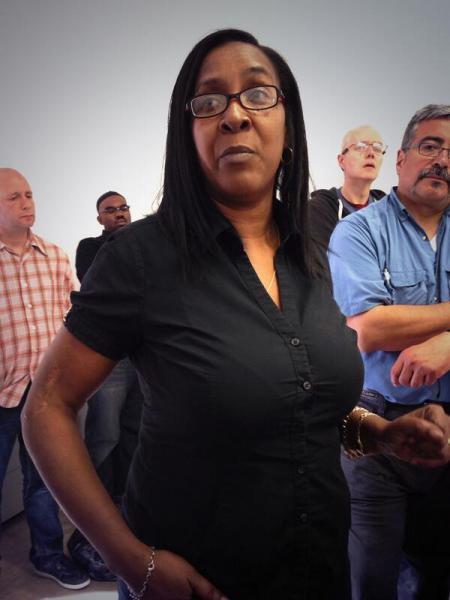A Letter on the Current Iraq Crisis from the Right to Heal Initiative
June 19, 2014
U.S. Department of State
Attention: Secretary John Kerry
2201 C Street NW
Washington DC 20520
Dear Secretary Kerry:
The US invasion of Iraq in 2003 incited a previously unimaginable deepening of sectarian divisions among the people of Iraq following the overthrow of the repressive Ba’athist regime of Saddam Hussein. The US government and its occupation forces set in place the most serious sectarian and ethnic tensions in Iraq’s modern history and have yet to address the humanitarian catastrophe set in motion by the war. On the 10-year commemoration of the US invasion in March 2013, the Right to Heal initiative brought together Iraqi social justice organizers and unionists with US military veterans opposed to the war and our group of politically-aligned organizations to call for reparations for the people of Iraq for the disastrous legacy US forces left behind.
Now the Iraqi people are facing a new deadly crisis, fueled by the sectarian divisions continually reinforced by the US-backed Maliki government. Militant fundamentalist groups, including ISIS, and remnants of the Ba’ath regime have overtaken several Iraqi cities. This week, Right to Heal member Falah Alwan of the Federation of Workers’ Councils and Unions in Iraq wrote[1] that despite the gravity of this conflict and the sectarianism underlying it, “it is also true that Iraqis generally reject ISIS…[and] at the same time, Iraqis generally reject Maliki’s regime, and its policies, built as they are on an ethno-sectarian basis.” What we haven’t been hearing much about lately is that many Iraqis have long opposed the sectarian political system at the heart of this crisis, and that class differences, political affiliation, geography and gender, are all issues that obsessive focus on “sect” in Iraq obscures.
The Right to Heal initiative demands no US military intervention in Iraq. US militarism in Iraq over the past two-plus decades has been disastrous.
Beyond that, we call for the withdrawal of current US strategic and political support for the Maliki government’s sectarian agenda, which along with fundamentalist and reactionary groups in Iraq, continues to stoke conflict. For example, the Iraqi government has recently bombarded civilian Sunni areas in Anbar Province, including Fallujah Teaching Hospital, over the past months, among other serious human rights violations.[2]
The US has also viewed Iraqi society as sectarian at its core. Perhaps most essential to the US role was the formation of Iraqi Governing Council appointed by US viceroy L. Paul Bremer in 2003 which instated a sectarian-ethnic quota system. This institutionalized sect and ethnicity as the political factor in the new Iraq. The sectarianism of the present Maliki regime, as well as of political formations across Iraq, were and continue to be profoundly shaped by these US policies. We demand that the US government support the Iraqi people’s call for an end to sectarian agendas.
Signed,
Organization of Women’s Freedom in Iraq
Federation of Workers Councils and Unions in Iraq
Center for Constitutional Rights
War Resisters League
Iraq Veterans Against the War
MADRE
cc:
Anne Patterson, Assistant Secretary of State for Near Eastern Affairs
Brett McGurk, Deputy Assistant Secretary of State for Iraq and Iran, Bureau of Near Eastern Affairs
Kari Johnstone, Acting Deputy Assistant Secretary, Bureau of Democracy, Human Rights and Labor
[1] http://www.jadaliyya.com/pages/index/18143/on-recent-events-in-mosul-and…
[2] http://www.hrw.org/news/2014/05/27/iraq-government-attacking-fallujah-ho…
(Image by Maysaloun Faraj, “Ahlam: Kites and Shattered Dreams” (2011). Courtesy of Ava Gallery, copyright Maysaloun Faraj.)
Share





